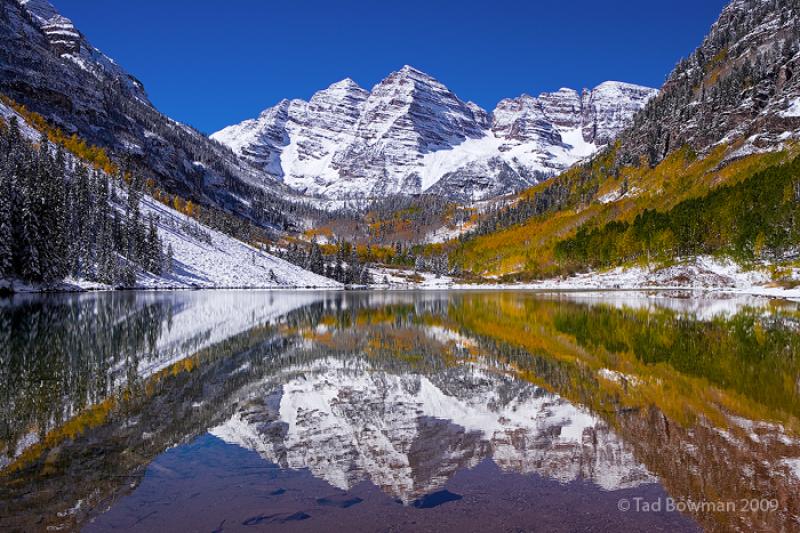Why Colorado thinks it has a chance to make oil companies pay for climate change


The most important climate change fights right now are in state courtrooms.

If successful, the suits would put energy companies on the hook for billions of dollars in damages to pay for sea walls to protect cities from sea-level rise, relocating homes, and farmland scorched by wildfire . The legal process could also force companies to reveal incriminating information about their efforts to obfuscate their role in global warming.
In an era with a Congress weak on climate policy and an executive branch hostile to even acknowledging climate change, courts remain some of the few avenues left to hold industry accountable for greenhouse gas emissions.
Some of the more interesting climate lawsuits are in Colorado, where Boulder County, San Miguel County, and the City of Boulder announced they were suing oil companies in April. The suits are notable because it’s the first time any government in the middle of the country is taking this step. And the legal claims are not just about the harm that will come but stem from some of the damages endured in the recent past, like flooding and wildfire.
With snowpack this year down by a third, threatening drought, the Colorado suits also allege that oil companies are responsible in part for harm brought to the local agriculture sector and to the area’s ski industry.
Colorado is a swing state , so it’s not a given that butting heads with fossil fuel producers in the courtroom is a winning political move. But the litigants there say they are willing to see this through to the end. And should the case prove successful, it could provide a blueprint for other parts of America to take up the climate change fight.
But last week, a federal judge dismissed lawsuits filed by the cities of San Francisco and Oakland against the five largest investor-owned oil companies in the world. While that was a federal court case and the Colorado suits are in state court, it shows that some judges aren’t convinced and a tough legal fight lies ahead.
Lawsuits are a new avenue for cities to deal with the impacts of climate change
In April, Boulder and San Miguel counties in Colorado, along with the City of Boulder, sued Exxon Mobil and Suncor Energy for “causing and exacerbating climate change.”
Exxon is one of the largest oil companies in the world with substantial operations in Colorado. Suncor’s US division is run out of Denver. Both of these companies are major players in Colorado’s economy and its environment. The state produces 4 percent of the nation’s crude oil and is home to the sixth-largest natural gas reserves .
Elise Jones, a Boulder County commissioner, said that the Boulder region was still reeling from major disasters that struck years ago that were exacerbated by the changing climate.
The 2010 Fourmile Canyon fire , for instance, burned through 6,181 acres, destroyed 161 homes, and cost more than $10 million to extinguish, making it one of the most damaging fires in Colorado history. Then in 2013, record flooding led to more than $4 billion in damages across 24 counties, killing four people in Boulder County.

“We’re a pretty wealthy area, and we blew through our savings,” she said. “These are the kinds of things that are going to be exacerbated.”
Massive floods struck Boulder County in 2013. The county is now suing Exxon and Suncor to help pay for extreme weather damages stemming from climate change.
Helen H. Richardson/The Denver Post/Getty Images
Western wildfires show a strong link to climate change, and warmer average temperatures are increasing the likelihood of intense rainfall events . The region is already prone to flooding , but these events are projected to become more severe, increasing their price tag. And Colorado is also likely to face some of the worst droughts in the United States by midcentury. Bouncing back and forth between downpours and drought is going to stress infrastructure like canals and sewage systems.
At the same time, average temperatures are rising. This is hitting Boulder and San Miguel counties especially hard in the warmer months because they are used to a temperate climate. About half of the homes in the area don’t have air conditioning, leaving residents vulnerable to extreme heat.
Boulder County is promoting sustainability practices like energy efficiency and aims to cut emissions by 80 percent by 2050. But climate change is a global problem, and there is little the county can do on its own to mitigate the effects of rising temperatures.
The county says climate change will cost upward of $157 million to adapt to by 2050. This includes more firefighting measures, removing trees killed by mountain pine beetles, and a reduced lifespan of roadways. This total doesn’t factor in increased cooling costs and upgrades to drainage systems to prevent flooding.
The price tag will squeeze the county’s finances, so alongside deploying more renewables and cutting greenhouse gas emissions, litigation is shaping up to be an important part of the county’s climate change strategy. The oil companies have a share of the blame, the county argues, so they should pick up a share of the tab. Jones said the lawsuit isn’t a cash-grab but part of a moral obligation to attack this problem from all sides and to share the costs of dealing with it.
“This isn’t a very good get-rich-quick scheme,” she said.
The Boulder County lawsuit also has broad support from constituents, some of whom say that it doesn’t go far enough and should also include a legal challenge to hydraulic fracturing in Colorado on climate grounds, according to Jones.
The Colorado climate lawsuits involve a new application of an old principle
Like the lawsuits filed in California and Rhode Island, the cases in Colorado invoke public nuisance law . The idea is that greenhouse gas emissions and all their consequences interfere with how the general public can use their homes, their farmland, and their recreation areas. The producers of this pollution are therefore liable for damages and losses.
“Nuisance is sort of the grandfather, or grandmother, if you will, of all environmental law,” said Marco Simons, general counsel at EarthRights International, a nonprofit aiding Boulder County, San Miguel County, and the City of Boulder in their climate change lawsuit. “It may be a new application of that theory, but there is nothing new about the claims we are bringing.”
The argument says that Exxon and Suncor knowingly produced harmful products and deliberately tried to mislead the public about them.
“Both companies have known about the likely impacts of climate change,” said Simons. “Both of them, rather than changing their course of action, have continued business as usual.”
The Colorado suits also invoke the Colorado Consumer Protection Act , since the plaintiffs claim Exxon and Suncor deployed deceptive trade practices.
A key question, however, is the scope of such a claim. Here, the courts are divided. In California, one judge ruled that climate lawsuits should be heard in federal court. Another California judge kept lawsuits filed by cities in state court.
In Colorado, the climate lawsuits are in state court for now, and the plaintiffs want to keep it that way. “Every court that has heard a federal climate change lawsuit has dismissed it on a variety of grounds,” said Ann Carlson, an environmental law professor at the University of California Los Angeles.
She explained that there isn’t a federal statute around public nuisance, which is why these cases tend to fall apart federal courts. It’s also why the defendants are pushing for these cases to be heard in federal court, where they have a better track record of beating these suits. Judge William Alsup of the United States District Court for the Northern District of California, who dismissed the San Francisco and Oakland suits, argued that since the claim involves climate change, a major global problem, it should be handled at a federal level.
“That’s a fairly radical argument,” Carlson said.
He was also skeptical of the nuisance argument. “There’s no court in the history of the universe that has ever extended this to global warming,” he said.
In state courts, the claims are narrower and the legal framework around using nuisance statutes to extract damages is more robust. The recent dismissal of the federal suits in California is therefore unlikely to impact the prospects of the state suits, though the oil companies will likely draw on the same arguments.
Even so, getting a settlement for damages from climate change would be an earth-moving precedent, and the wheels of justice turn slowly.
“It would still be a very big deal for a court to find in favor of a city,” Carlson said. “We’re years down the road from having a decision.”




I'm interested in hearing the reactions of our self-styled Libertarians. It seems to me that this is how things should work in their world: making the polluter pay for the pollution.
I think hopefully the other cases will get shot down. This is encouraging.
“But last week, a federal judge dismissed lawsuits filed by the cities of San Francisco and Oakland against the five largest investor-owned oil companies in the world.”
So... Are there any conditions under which manufacturers could be required to pay for the pollution they produce?
It's happened and hopefully this isn't going to be one of them.
How?
Not likely. How do you prove in a court of law what pollution came from what source, or that said pollution resulted in a particular circumstance...or not. Good luck with that.
Are you satisfied to pay part of the clean-up yourself, even when you had nothing to do with it?
Colorado experienced a record-low snowfall during the 2017-’18 winter season. Boulder and San Miguel counties are suing Exxon in Suncor in part for damages to the local ski industry wrought by climate change.
Some years we get dumped on here in Colorado, other winters are milder and drier than average. Some parts of the state get a lot, other parts don't. The above statement means nothing and would not qualify as a winnable case in any court, too many variables in play to bring a case or to prosecute. Too many "maybe's" and "what if's". I could go into great detail for you, but it would be a waste of my time. The concept of climate change is still theoretical and founded on computer models which can notoriously unreliable, rather than on sound science. Too many inconsistencies and projections of conditions that have not occurred or didn't work out as the climate models predicted.
Many years in the 30's were hotter than what we have experienced recently. What explains that? We're still in an interglacial period of warming since the last major Ice Age and the Little Ice Age that ended about the time of the Civil War. We could be headed for ice age, no one really knows. We do know there were several of them going back a few million years. As far as the picture of the flooding in 2013 along the Front Range of Eastern Colorado, it was caused by the convergence of an early cold front with the remnants of a tropical disturbance moving in from the Southwest. It all got hung up on the Palmer Divide and dumped a lot of rain for a few days. Similar conditions caused the Plum Creek flood of 1964 and the Big Thomson flood of 1976. It's not all that uncommon. A lot of weather that some call extreme is not.
... and all those scientists are conspiring to get more MONEY!
You have no idea what I did for a living, but I guarantee I know WAY more about weather, climate, atmospheric science, etc, than your's truly.
Ummm... Greg??
"Yours truly" refers to the person who is speaking. Not to the person spoken to.
"The goal is to make the oil majors liable for the greenhouse gases produced from their products"
It's not like 7.5 Billion people are to blame for USING the products. No.....not at all !
overpopulation is the problem
I get laughed at or chastised for saying that.
strangely I have had both sides disagree with me on that
It's like the "Job" thing. There are only so many jobs out there to offer. Folks don't get that.
Only YOU can buy the product you despise. Without YOU. ...the product wouldn't exist. Without the "Product", there are no jobs available.
It's a "Catch22" !
The produit pollutes and / or its manufacture pollutes. The pollution must be cleaned up sooner or later. Someone will have to pay.
If neither the manufacturer nor the consumer pays, then the collectivity - all of us - will have to pay.
If the manufacturer pays, then the cost will be included in the sales price of the product. The burden for cleaning up the pollution will be borne by those who polluted.
The manufacturer will be encouraged to limit the pollution. If this method drives the sales price too high, then the product will die, and the pollution will cease.
The "USERS" ……. the "collective" …….. always pays. Funny how that ALWAYS works huh !
I think that's unfair. I think the cost of pollution (or any other nuisance) should be borne by those who create it.
In this case, the pair producer/consumer.
It is ! Corporations are "Fined" all the time. You just don't like the "Consumer fine" part.
The fines are peanuts.
Why do you say I don't like the consumer fine? I explained that any penalties laid on the manufacturer would be passed on to the consumer...
I definitely agree that the consumer should participate in the cost of clean-up.
Did you "Forget" what you posted when speaking of the consumer having to pay:
2.1.6 - "I think that's unfair."
or
are you just trying for another one of those "I didn't mean what I said" gotchya moments again ?
Look... You have no standing to be grilling me. You've been aggressive since the beginning, here, while I've been patient.
I'll give you one more try and then you can go.........
Re-read 2.1.6. What did I say is unfair? That the collectivity and the consumer pay.
The manufacturer should pay part, and the collectivity should not pay at all.
So I stand by 2.1.6. The cost should be borne by the manufacturer and the consumer.
Now... If you wish to discuss the topic further... fine. If you attack me again... not so fine.
But I do. The past can come back to bite one.
The "Collectivity", is the consumer/people, based on the discussion we were "patiently" having with one another.
Based on your own article, the "Producer" is a Separate entity from the "Consumer/Collective" on this matter.
Definition of collectivity
plural collectivities
2: a collective ; especially : the people as a body
It's ruff ain't it.
It does seem a little disingenuous to go after a tiny segment of the contributors of climate change. You could shut all of the defendants down completely and it would only make a little dent in the global problem.
True...since climate change has progressed beyond the tipping point and is irreversible and we WILL TURN INTO ANOTHER VENUS, AND ROAST TO DEATH